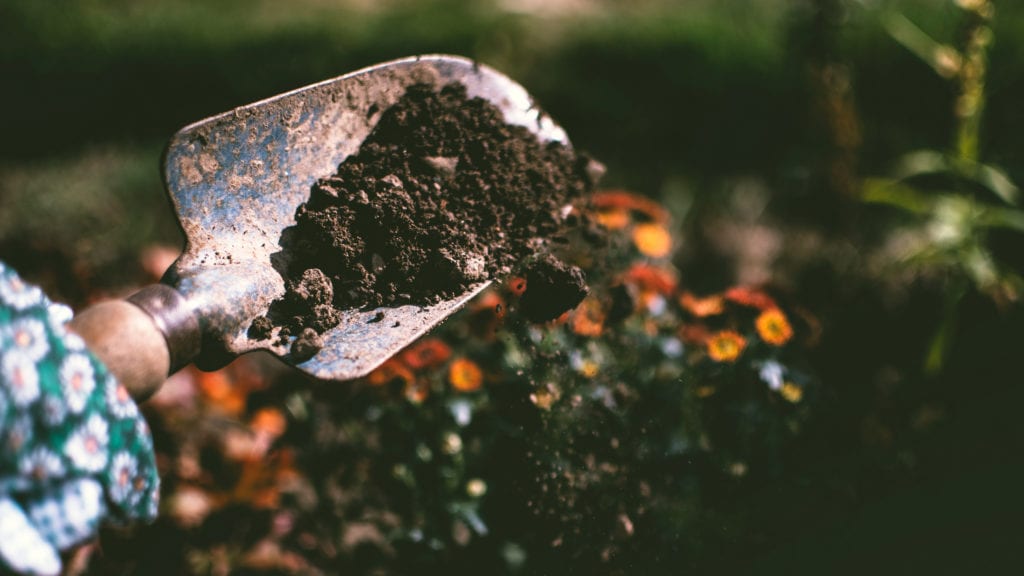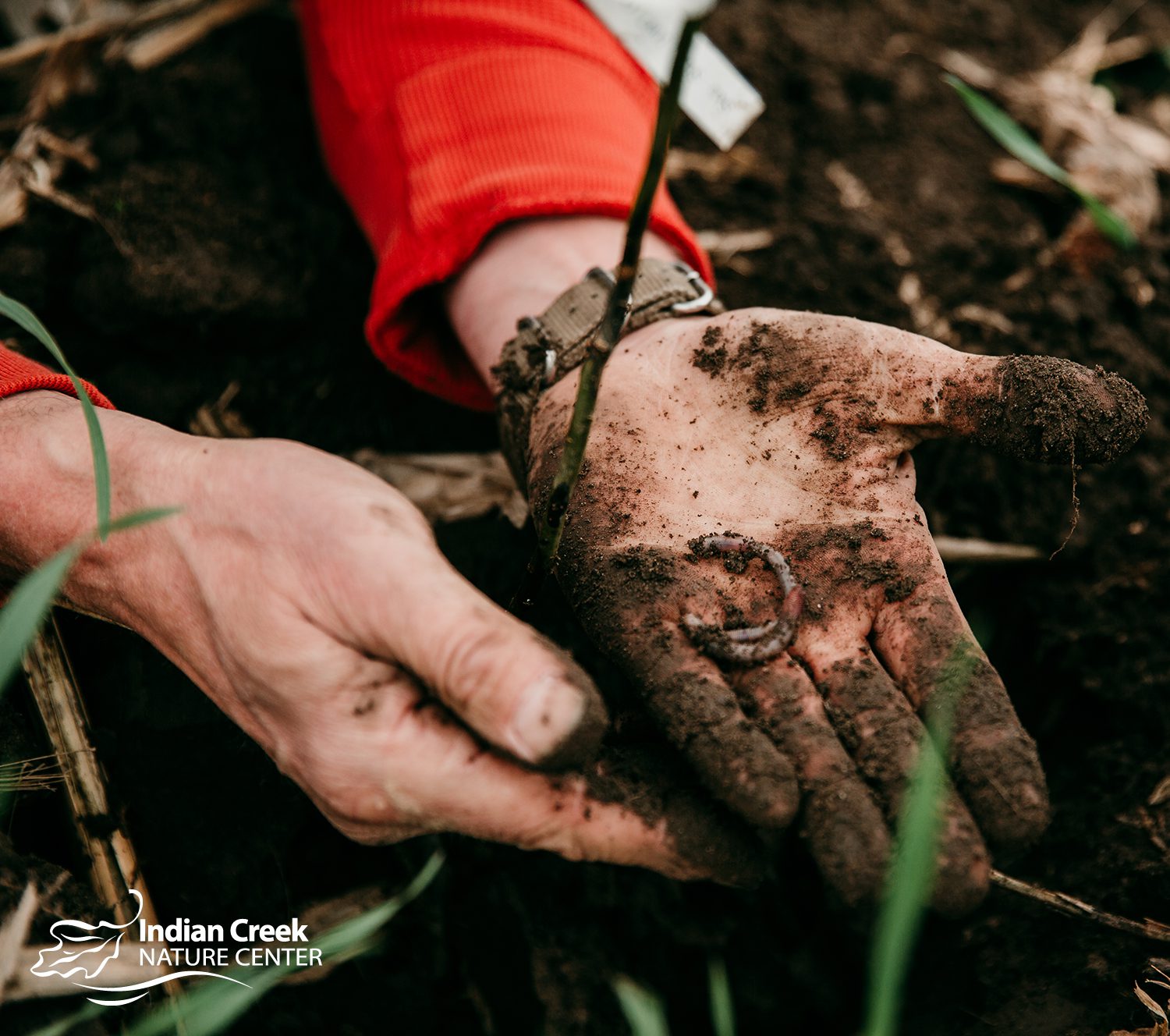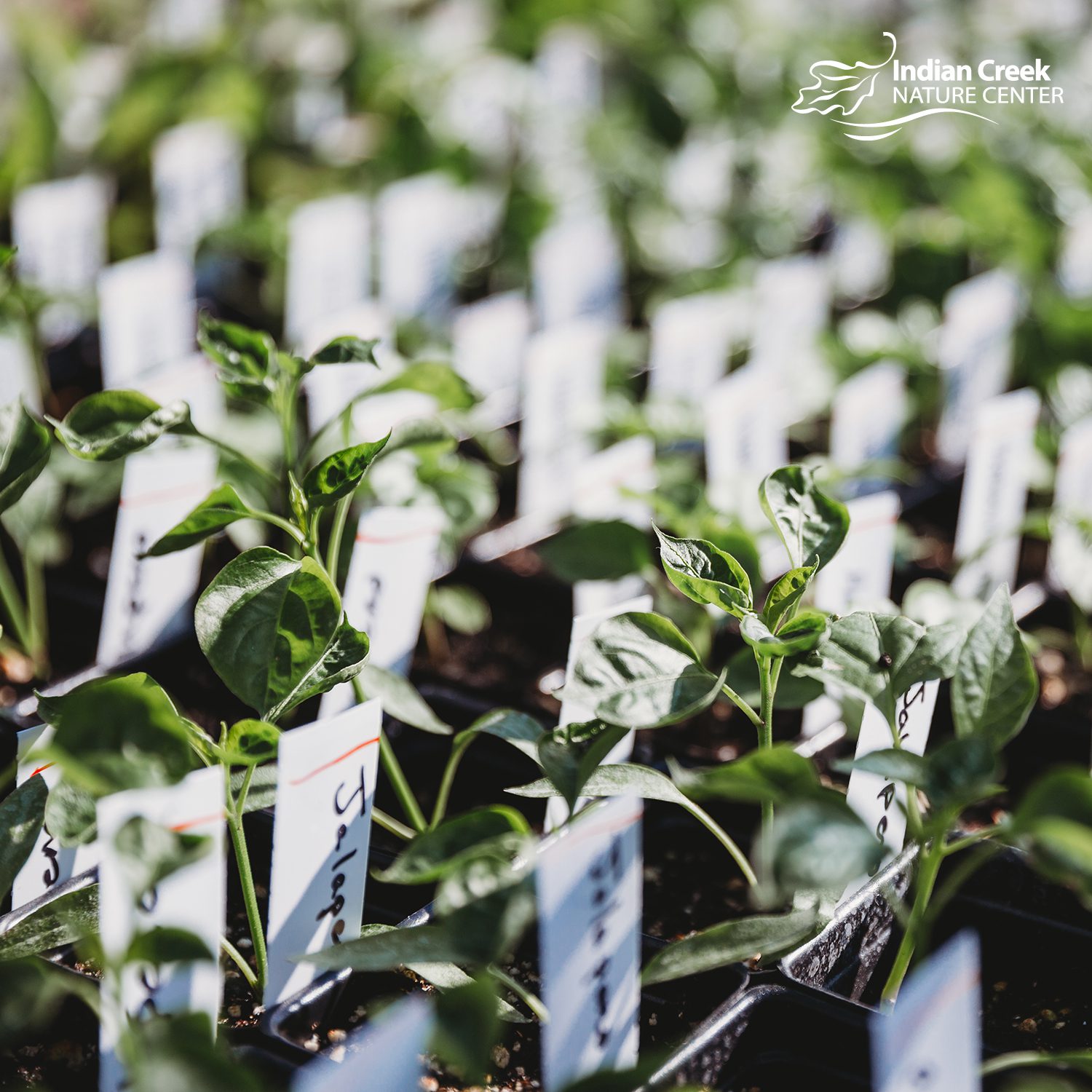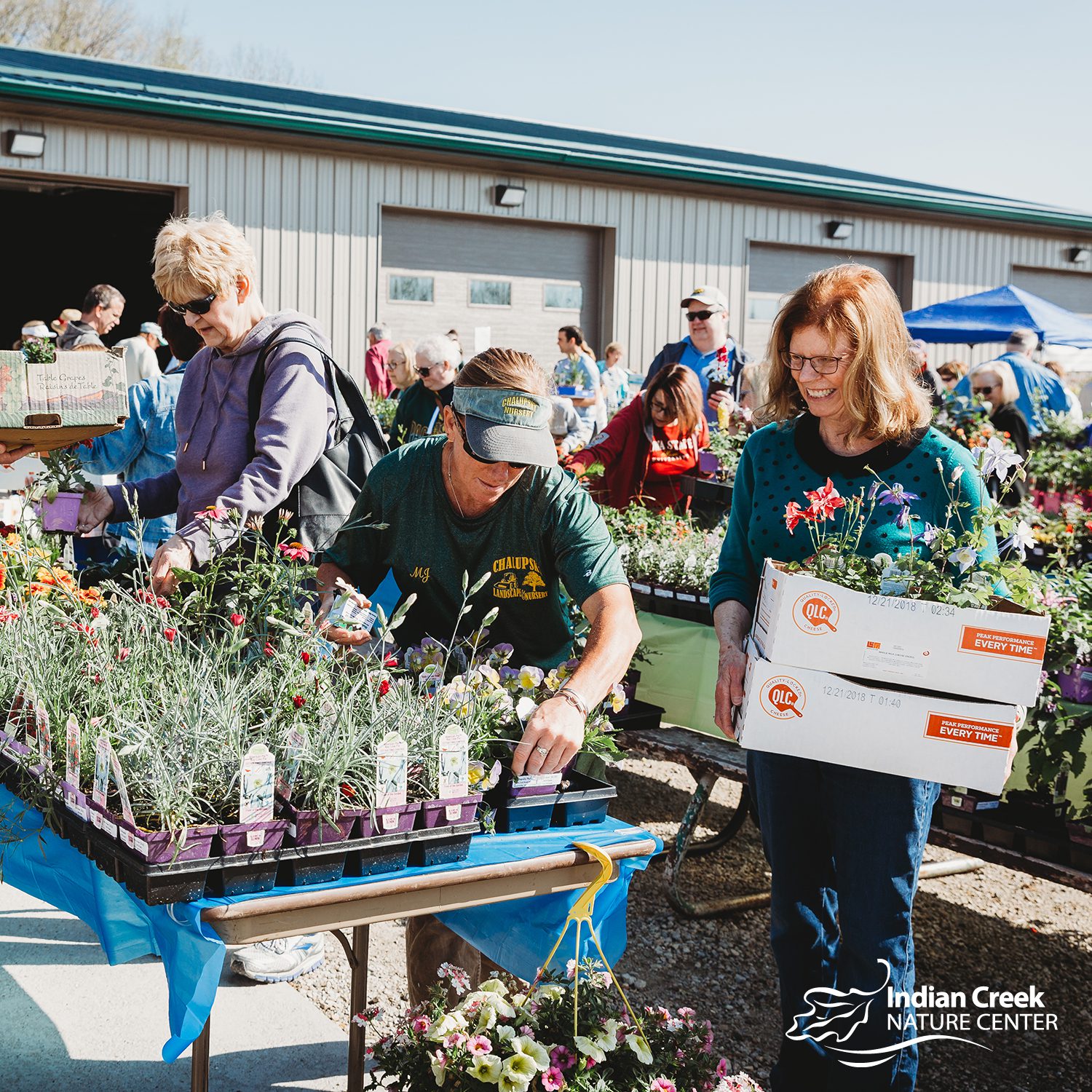With everyone isolated at home due to the COVID-19 pandemic, there’s no better time to start a garden. Spending time outdoors is great for your physical and mental health and not only beautifies your home and yard, but also, if growing vegetables, provides fresh and healthy food throughout the summer (grow your own food security!).
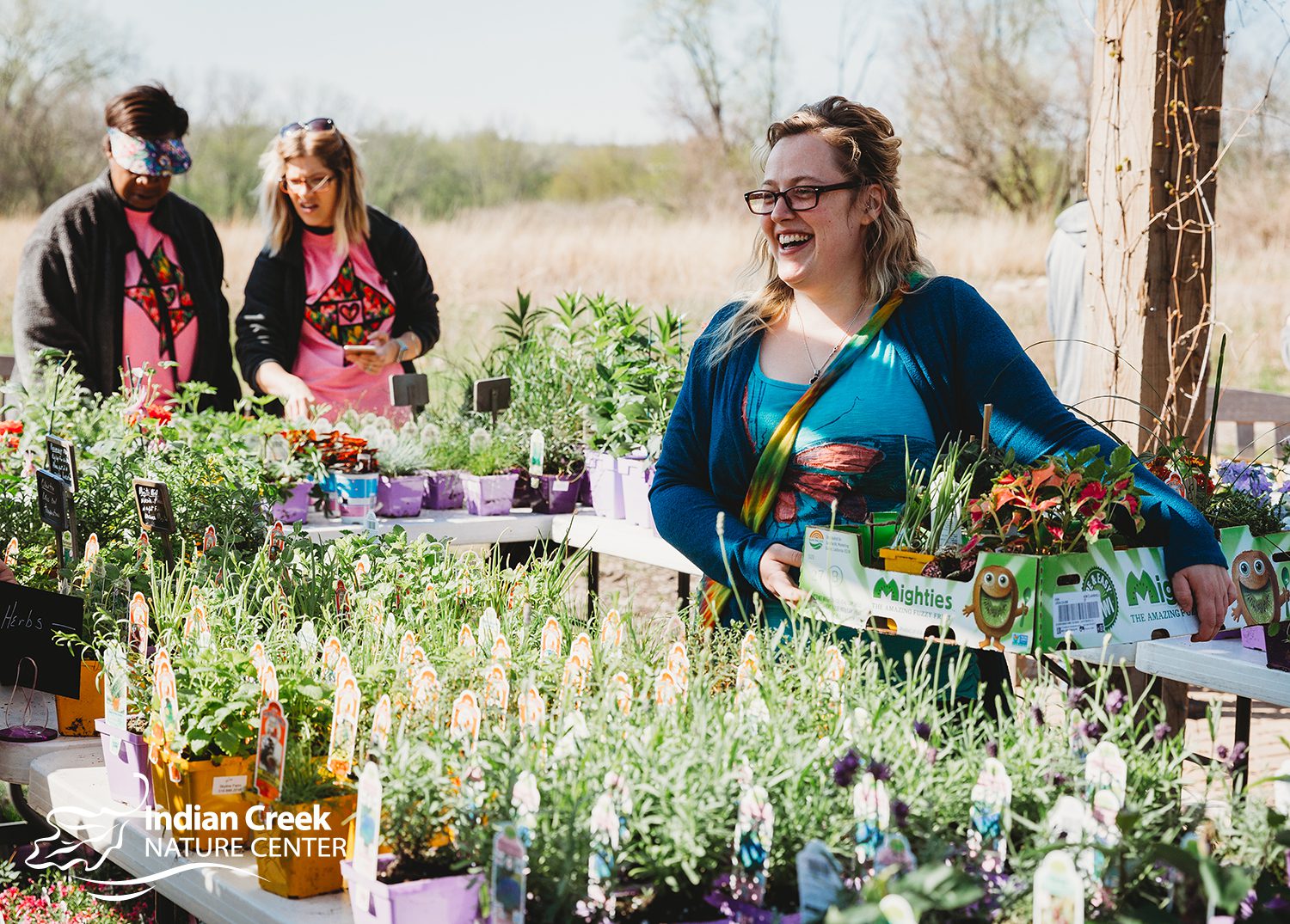 Good news is, we’ve moved our Spring Plant & Art Sale online this year — just in time! Sales open on our website at noon* on Friday, April 17 and will remain open until noon on Saturday, May 2. *For members at the Household Plus level and above, sales open at 8 AM on April 17.
Good news is, we’ve moved our Spring Plant & Art Sale online this year — just in time! Sales open on our website at noon* on Friday, April 17 and will remain open until noon on Saturday, May 2. *For members at the Household Plus level and above, sales open at 8 AM on April 17.
We’ll have a variety of plants available for purchase, including native wildflowers, prairie plants, perennials and annuals, vegetables, herbs, seedlings, seed packets and milkweed (stock up before our free caterpillar adoption at Monarch Fest on July 11!). We’ll also have garden accessories, home decor and art, ICNC honey and maple syrup, farm fresh organically-raised eggs from Etzel Sugar Grove Farm and more!
Once orders are finalized on May 2, Nature Center officials will assign no-contact pick-up times for people to safely pick up their orders from the Nature Center.
Before you shop, here are some tips to get the garden of your dreams!
- Pick the right location — Greet your plants with the morning sun by plating them in a location with direct morning sunlight. Many plants prefer at least 8 to 10 hours of sunlight a day. Make sure your garden has good drainage. If you’re unable to install a raised bed, place the garden bed on a slight slope.

- It’s all about the soil — Soil should have a crumbly texture. If it’s super hard or clay-like, plants will have difficulty rooting. Enrich the soil with nutritionally dense compost. As a Linn County resident, you can source as much free compost as you want from the Solid Waste Agency’s Mount Trashmore location!).
- Start small — Come up with a plan for your garden and grow only things that you’ll love!
- Assemble your tools — shovel or spade, trowel, bow rake, stirrup hoe, hosing and a tiller if possible.
- Choose the right plants — Keep your region in mind (we’re in zone 5). Not everything grows everywhere! If you are a beginner, pick plants that are easy to care for, such as:
- Vegetables: tomatoes, zucchini, peppers, radishes, lettuce, kale, or carrots
- Flowers: marigolds, sunflowers, coneflowers, daffodils, or hostas
- Direct sow or transplant — Depending on what you want, you’ll either be sowing seed directly into the ground (like green beans, peas, cucumbers, potatoes, onions, carrots, beets) or planting transplants (tomatoes, peppers, greens, herbs, broccoli, eggplant, squash, melon). If you don’t have the capacity at home to start transplants, you’ll likely need to buy those from our Spring Plant & Art Sale or a local garden center.

- Annuals vs. Perennials — Some plants have year long cycles (annuals), while others come back year after year (perennials, like strawberries or asparagus, for example). If planting perennials, our Farm Manager Scott Koepke recommends planting them in a separate garden bed.
- Space your crops properly — Every plant has a personal bubble. Make sure to space them appropriately. Know how they will grow. Do they grow wide, or tall? For example, squash and melons are “sprawlers” and vine out rapidly and will take over an entire garden space if allowed. Consider a separate bed for these types of plants. Some plants require trellising (such as cucumbers, tomatoes or beans). Make sure taller plants don’t block smaller ones from the sun. However, some varieties are more partial to shade so pay attention to your plants preferences.
- Timing is everything — Our growing season is from April through October. Read the directions on seed packets and transplants or research the plant to make sure you are planting and harvesting at the right time (as well as other care instructions like spacing and watering). Some plants are pickier than others.
- Water appropriately — Beware of watering too much or too little. If the soil is dry, give it some water. If it’s moist, hold off. It’s best to water early in the day so that the foliage can dry by evening. In the absence of timely rain cycles, use soaker hoses instead of foliar sprayers. Plants drink from their roots, not leaves, so water at the base!

- Consider companion planting — Certain plants like to be next to one another. Farm Manager Scott recommends reading Louis Riotte’s “Carrots Love Tomatoes” for further information.
- Plant flowers — Incorporate a border of flowers and herbs to attract beneficial insects (pollinators and pest predators). Biodiversity is the key to organic pest control. Attract bugs that eat bugs!
- Mulch between plants — Farm Manager Scott recommends straw which serves the dual purpose of retaining hydration and suppressing weeds.
- Be patient — Monitor your plants regularly, but don’t fuss with them too much. Unless something looks wrong, let them be. Harvest when plants tell you they’re ready and enjoy the fruits of your labor and the therapeutic benefits gardening provides for your body and mind.
Have questions or wanting to speak with an expert? We recommend contacting the Linn County Master Gardeners’ “hortline” at 319-447-0647 or our Etzel Sugar Grove Farm Manager Scott Koepke at scott@indiancreeknaturecenter.org.

